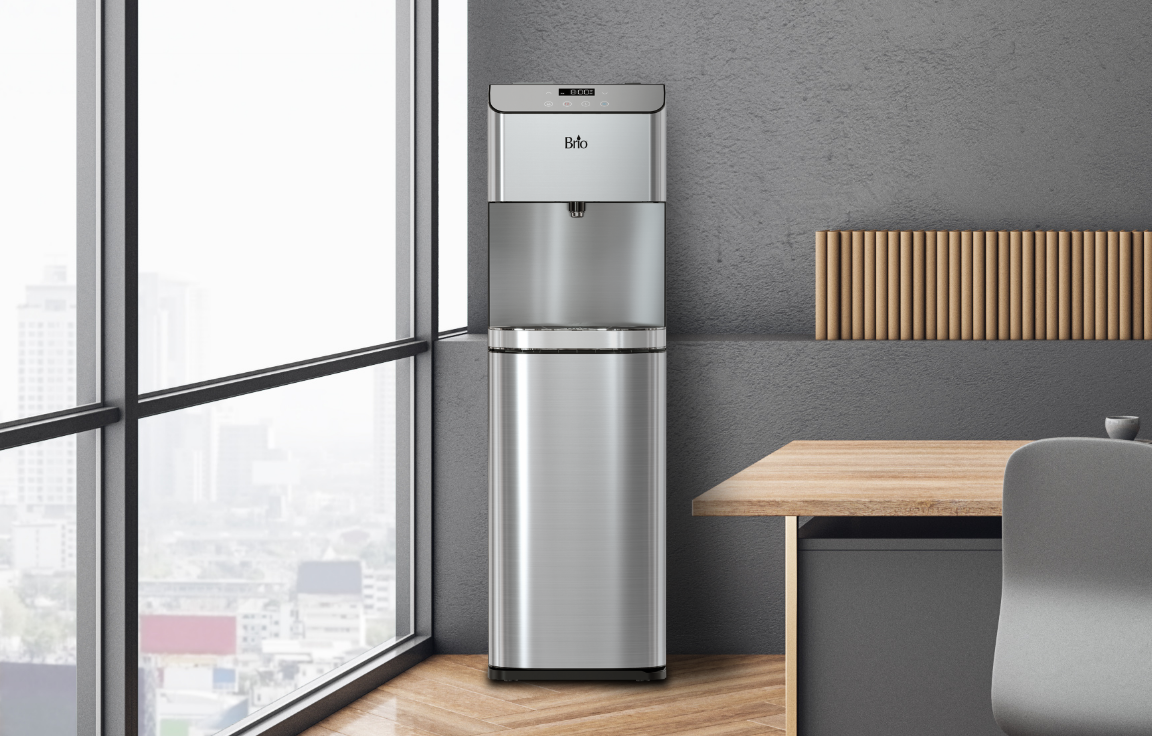As they say, “Water IS life.”
All living organisms need it to survive — and it impacts every cell in the human body, including our skin cells.
While there are many ways to show your skin the love it deserves, few things trump proper hydration. Studies show a direct link between the amount of water consumed and skin hydration. Yet, as many as 80% of people do not drink enough water.
Here’s what you need to know to protect your skin.
The Science Behind Skin Hydration
When aiming to protect your health, you likely focus on your heart and other critical organs. However, the largest organ, your skin, may not be considered.

The skin is a complex organ influenced at the cellular level. Without water, skin cells do not function as they should.
In addition, when you drink enough water, it can help support:
- Better skin elasticity
- The skin’s healing properties
- Optimal overall health
After all, nearly 65% of your skin is water, so when you’re properly hydrated, it feels soft and looks more plump. In contrast, poorly hydrated skin often looks dry and flaky. It can also worsen skin conditions and increase inflammation. For example, a lack of hydration can cause eczema flare-ups.
Why Focus on Skin Hydration?
Your body does a lot every day. Whether it be temperature regulation or digestion, water is key for optimal functioning.
The benefits for your skin are vast. Drinking enough water directly influences how your skin cells function, how your skin looks, and even how it ages.
Consider the following reasons for drinking more water.
Enhanced Barrier Function

While each layer (and sub-layer) of your skin requires water to function properly, the epidermis — particularly its upper layer — is your body’s first line of defense.
This skin barrier protects you from:
- Toxins
- UV rays
- Poor hydration by regulating water loss
If the cells underneath the barrier lose too much water, they shrivel up. At this point, your skin will look dull, and fine wrinkles will become more noticeable. Itchy and cracked skin can also result in discomfort and an increased risk of infection.
Bottom line: Drinking enough water can help strengthen your skin’s barrier, supporting its moisture-locking system.
Improved Elasticity and Resilience

There is a reason why your skin looks dull when you don’t drink enough water — it’s supposed to contain plenty of it. Studies show that people who consume enough water impact the physiology of their skin, especially its elasticity.
When you drink enough water, your skin also becomes more resilient. Stronger, healthier skin heals better and can repair more quickly.
Bottom line: While water does not cure aging, those who drink enough water daily can significantly improve their skin’s appearance. The younger you get into the habit of drinking enough, the better, as it will help minimize the loss of skin elasticity.
Signs of Dehydrated Skin
Being mindful of common signs will help you mitigate the risks associated with dehydrated skin. If you notice any of the following signs, take a proactive approach and implement the tips that follow.
- Dull skin that lacks shine
- Darkening around your eyes
- More prominent fine lines
- Itchy skin
- Uneven complexion
- Increased flaking and scaling
How to Hydrate Your Skin
Want to achieve optimal skin hydration? Consider the following strategies.
Use Topical Products

Drinking more water should be at the top of your skin health checklist. However, it’s not the only effective hydrating skin care strategy. Topical creams can help slow down collagen loss and add moisture.
Some of the top-quality ingredients you should look out for include:
- Ceramides
- Hyaluronic acid
It’s best to avoid those with fragrances and be mindful of your skin type. Those who have sensitive skin should be more mindful of organic skin care lines, as they use many ingredients that can irritate allergies. As a board-certified dermatologist said, “The dermatologist’s favorite joke is that ‘poison ivy' is all-natural.” So, all-natural in no way means hypoallergenic.”
Check out some of the top moisturizers and serums for different skin types.
Water and Diet Matter - Take Small Steps
Creating new routines can be tough, especially if you’re completely altering your diet.
While many resources say eight cups is the ideal daily intake, everyone is unique. Weight, exercise, and other variables, like breastfeeding, all play a role.
To start, take your weight and multiply it by 0.5. So, if you are 160 pounds, you should drink around 80 ounces daily, which is ten cups. Add 10-12 ounces for every half hour you work out (or more if you’re outside in the heat).
You can also incorporate more foods that contain 90-100% water, like cabbage, cucumbers, melons, peppers, and other hydrating foods.

Tip: Make water more accessible throughout the day. Having a quality water dispenser in your home or office can be the perfect reminder to drink more.
Invest in the Quality of Your Water

Getting enough water for your skin is key, but so is quality. For example, someone with problematic skin may want to invest in a water softener. There are also concerns about chemicals in tap water and how they influence your organs, including your skin.
Whether you want to implement a filter system or are interested in bottled water solutions, Brio can help. Visit the Brio Solution Finder to discover innovative water filtration systems today!













































































